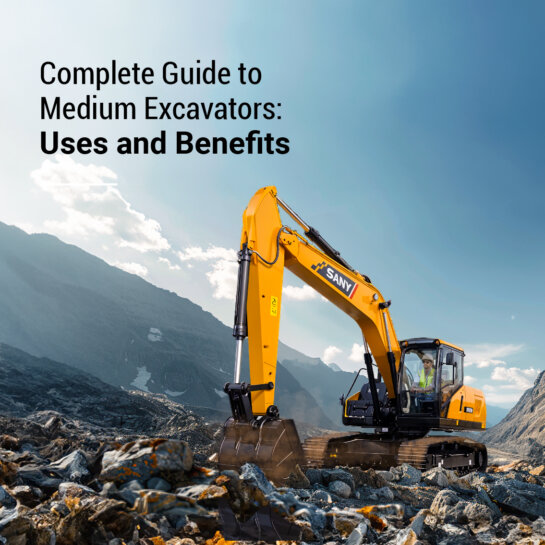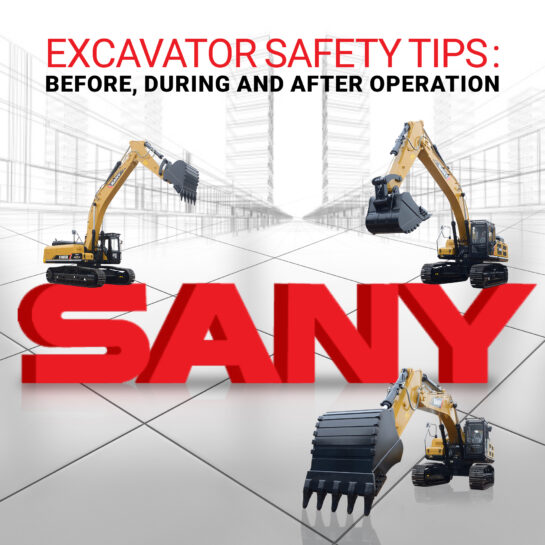What are the Maintenance Tips for Excavators?
Category: Excavators | 08 June 2023

Excavators are one of the most important machinery used for tasks like construction, mining, landscaping, etc. and these are available in a number of sizes and types. It is important to keep these machines in good working conditions because of their rough and regular usage. If the machine is not put under regular maintenance, it can cost you valuable time, money, and effort and can also decrease the lifespan of your machine.
Here are a few tips on managing and maintaining your excavators for better durability :
1. Greasing: Grease is the fuel for the smooth functioning of the machines. Operators should grease all the pins and bushings of these types of equipment daily. If multiple people are operating a single machine, grease points should be marked so that the person who is using it should know where to apply the grease. While greasing is important, it should be kept in mind that even over greasing of the machine can be problematic.
2. Excavator’s oil: Oil is the fuel to keep the machinery alive. It is important to note the level of oil in the excavator. An excavator has an extremely diverse hydrodynamics framework which makes it difficult to utilize low-quality oil and can create difficult issues like water-powered disappointments. Make sure that the oil you use for your equipment is of great quality even if it is a bit costly as it will save up a huge chunk of money and effort in the long run.
3. Preventive Maintenance and Service: Getting your machines serviced regularly can increase the lifespan of your excavator. Also, when you keep the underside of your excavators clean, it becomes easier to spot spills and can help in the debasement of track segments. Both the large and the small parts of your excavator need proper care and service.
4. Regular inspection: Inspection of water tanks and fire extinguishers should be done consistently to ensure the smooth functioning of your excavators and to avoid any hazards on the construction site.
5. Picking the correct bucket attachments: Make sure that the bucket attachments that you pick out for your excavator match with the requirements of the excavator. The kind of bucket attachments can vary from standard, ditch, or even trench attachments and can be dependent on the way they will be used for unearthing.
6. Undercarriage and rubber track maintenance: Pay close attention to bolts, shoes, guards and tracks and replace these parts when needed. It is also important to monitor the track tension and maintain rubber tracks on excavators.

The heavy lifting can take a toll on the excavator’s safety, efficiency, and overall performance and can lead to expensive repairs and part replacements. Thus, taking out time for the maintenance of the excavators can be a smart investment.




